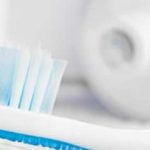Do I really need to floss?
Recently, flossing has become a ‘hot topic’ and whether we need to floss is being debated in the media. A recent report in the Associated Press indicates that there is little research-based evidence for the effectiveness of flossing.
Dentist’s opinion on this is pretty clear.
You’ve probably heard the old dentist saying ‘you don’t have to floss all your teeth, just the ones you want to keep’. Brushing alone only cleans 50% of the tooth surface, so it only does half the job. The only way to clean in between your teeth (the most common place to get decay/ cavities and gum disease) is to floss.
Periodontal (gum) disease is a slow, destructive, painless disease and often unless you receive regular thorough dental checks you may not know you have it. If you have a family history of periodontal disease, are or have been a smoker, or are diabetic then you are at a higher risk of problems.
Not flossing allows plaque, the thin film of bacteria and saliva that clings to the teeth and builds up over the day, to turn into calculus (or tartar which is it sometimes know as), a hard deposit that can irritate and inflame the gums. Over time this bacterial build up causes an infection in the gum and bone surrounding it, resulting in receeding gums and bone loss. Eventually the damage to the gum and bone can be so severe there is nothing left to hold the tooth in place, so it becomes loose or infected and needs to be removed.
Periodontal disease is kind of like termites in the foundation of your house, they can be there silently slowly destroying your house and unless you get regular inspections you don’t know they are there. The foundations can be eaten away by them, until there is nothing left to hold the house up and it collapses.
If you think that you would know if you had gum disease, unfortunately this is not the case. Most people that have it have no idea, as it is painless and only noticeable to the sufferer in the last/ final stages of the disease.
If you don’t floss, having cavities and gum disease may be the least of your problems.
The bacteria that cause gum disease don’t just damage your teeth and gums, they can get into your blood stream and wreak havoc in other parts of your body as well.
Gum disease is known to be involved in causing at least 20 serious chronic health problems such as: heart disease, diabetes, kidney failure, osteoporosis, pneumonia, cancer and Alzheimer’s.
So while people worry about their weight, diet, exercise to prevent chronic disease; how many people think about their gum health and how it may be contributing to chronic health problems.
With flossing the technique you use is important, if you don’t do it properly then it probably is ineffective. If a dental professional has never shown you how to floss, ask me next time you are in to show you, otherwise I will be posting another blog about how to floss hopefully in the near future – stay tuned…
I know no one likes to floss, so this ‘research’ may sound like a godsend, but I can assure you there are immense benefits from flossing.
Dr Debra Brown
Book an appointment or contact us for more info.



